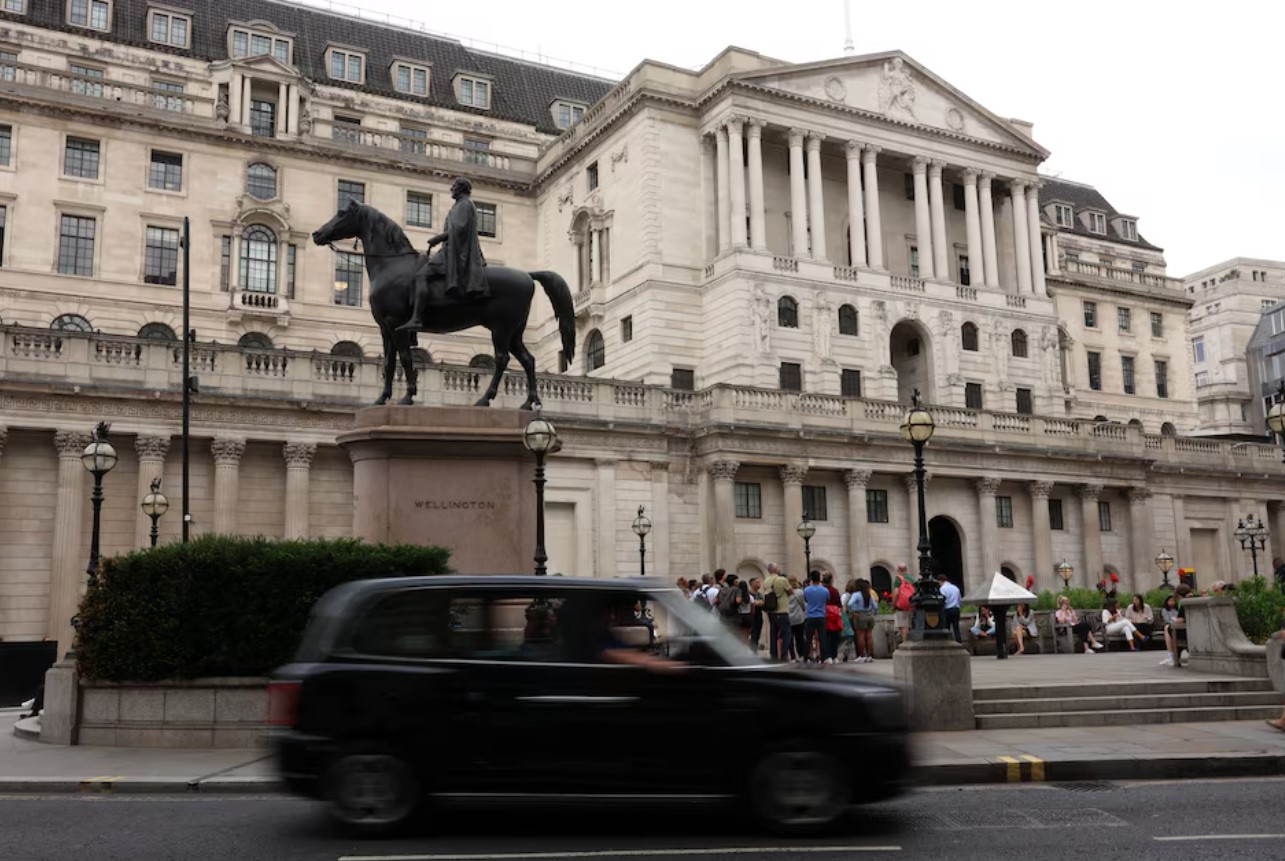The Bank of England held interest rates at 4.5 per cent and warned against assumptions that they would be cut over its next few meetings as it grappled with deep uncertainty hanging over the British and world economies.
Noting the escalation of global trade tensions kicked off by the United States under President Donald Trump, the Monetary Policy Committee voted 8-1 to keep rates on hold, with only external member Swati Dhingra voting for a quarter-point cut.
Economists polled by Reuters had mostly forecast a 7-2 vote to leave borrowing costs unchanged.
“There’s a lot of economic uncertainty at the moment,” Governor Andrew Bailey said in a statement.
He said the BoE still believed rates would fall gradually but it would look “very closely at how the global and domestic economies are evolving at each of our six-weekly rate-setting meetings.” Policymakers next meet on May 8.
The Monetary Policy Committee said “there was no presumption that monetary policy was on a pre-set path over the next few meetings” although it still expected inflation pressures would continue to ease.
Sterling rose by almost a fifth of a cent against the US dollar after the announcement and British government bond prices fell slightly. Market expectations for rate cuts for the rest of 2025 were barely changed.
Analysts picked up on the message of caution from the central bank.
“The Bank of England is stuck between a rock and a hard place with inflationary pressures mounting alongside a weak growth outlook,” said Zara Nokes, global market analyst at JP Morgan Asset Management.
“The Bank would be taking a risk to assume that softer surveys will feed through to the hard data and should therefore remain laser focused on the inflation threat.”
All 61 economists polled by Reuters before the BoE’s March meeting had predicted it would keep Bank Rate on hold at 4.5 per cent with a cut likely in May, followed by further reductions in August and November.
The MPC on Thursday repeated its February guidance that it was taking a “gradual and careful approach” to rate cuts.
It said global trade policy uncertainty had intensified after the United States announced a range of import tariffs that prompted retaliation from some other countries.
“UNCERTAINTIES”
The US Federal Reserve on Wednesday cut its economic growth forecasts for this year, raised its inflation projection and said uncertainty hanging over the economy had increased as it kept borrowing costs on hold.
European Central Bank President Christine Lagarde said on Thursday that a 25 per cent tariff imposed by the United States on imports from Europe would lower euro zone growth by about 0.3 percentage points in the first year, while retaliatory measures could increase this to about half a percentage point.
Earlier on Thursday, the Swiss National Bank cut rates by 25 basis points as it focused the risk of trade wars for inflation and the global economy. Sweden’s central bank kept its policy rate unchanged.
The BoE said “other geopolitical uncertainties have also increased” and noted Germany’s huge borrowing plans.
At home, the British government’s imminent tax hike for employers was probably behind price increases in the services sector, and the BoE noted surveys suggesting weakness in hiring intentions by businesses.
The BoE slightly increased its forecast for a peak in inflation this year to 3.75 per cent in the third quarter, up slightly from its estimate in February of 3.7 per cent.
With UK inflation stuck firmly above its 2 per cent target – it rose to 3 per cent in January – the BoE has cut borrowing costs by less than the ECB and the Fed since last summer, contributing to the economy’s sluggish growth rate.
The central bank nudged up its estimate for economic growth in Britain in the first three months of 2025 to 0.25 per cent from a previous projection for an increase 0.1 per cent.
Also on the MPC’s radar is finance minister Rachel Reeves’ budget update speech next Wednesday in which she is expected to announce cuts to public spending plans, a big component of Britain’s economic growth outlook.






Click here to change your cookie preferences